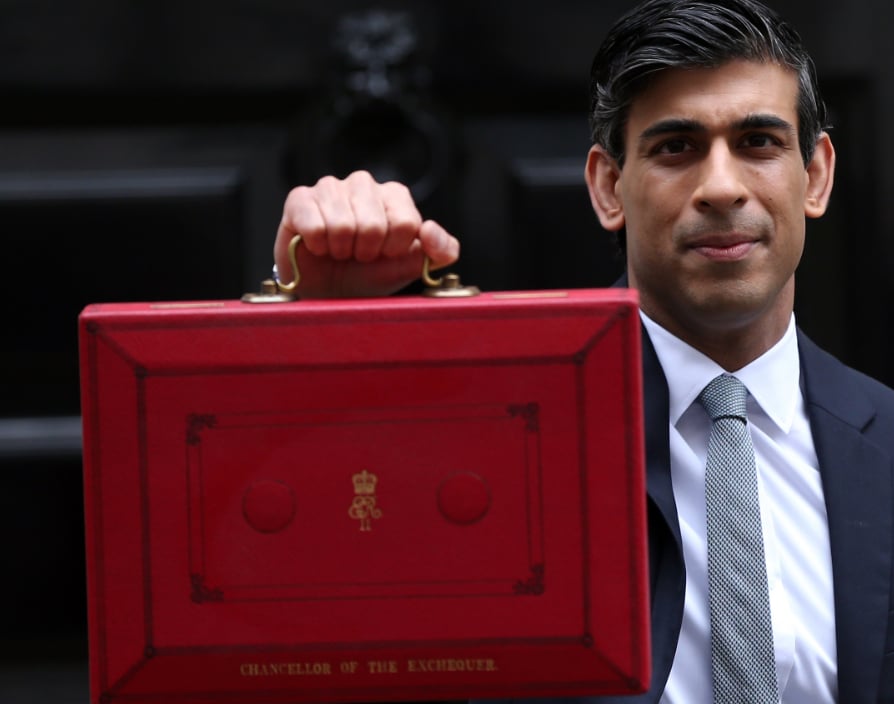Chancellor Rishi Sunak announced a series of measures aimed at offsetting the increased cost of living in the UK
Chancellor Rishi Sunak announced a package of measures today amid the cost of living crisis as businesses and consumers face rising energy bills, and a hike in petrol prices due to the ongoing war in Ukraine. The new measures are expected to weather the impact of rocketing prices, with small and medium-sized businesses bearing the brunt of rising costs. As the new tax year begins on 6 April, new changes are set to be introduced. How will SMEs be affected by the new measures?
Mr Sunak announced that fuel duty will be cut by 5p a litre on the largest reduction in history. This will take effect from 6 pm on 22 March and will last for 12 months. The drop in fuel price will reduce the cost of filling up an average tank to offset the spiralling petrol prices. In addition, the National Insurance threshold will increase by £3000 to £12,570. In what Mr Sunak called ‘the largest single personal tax cut in a decade’. This means tax will be cut for Britons across the UK, saving people £330.
Meanwhile, the thresholds for income tax and National Insurance will be aligned, so employees will be able to earn up to £12,570 a year without paying a penny in income tax or National Insurance contributions. This change will take effect from July. The 1.25 per cent increase in national insurance contributions from April is 2.5 per cent for employed managers paying PAYE as it applies to both employer and employee contributions. However, the Chancellor only mentioned the impact on employed people, leaving a question mark over whether the £12,570 national insurance threshold applies to the self-employed.
From April this year, employee allowance will increase from £4000 to £5000 saving small businesses £1000 a year, helping to reduce the impact of the increase in National Insurance contributions. Mr Sunak rounds his speech by pledging to cut income tax in 2024, which will see the basic rate of income tax reduced from 20% to 19%. The Chancellor re-iterated the 50 per cent business rates discount for the retail, leisure and hospitality sectors as of 1 April but with a cap of £110,000 per company. Business rates will be evaluated once more in 2023, based on rental values of 2021, which should see bills coming down for many in struggling sectors. For the Autumn budget, Mr Sunak promised to encourage investment in skills, improve the UK’s levels of capital investment and promises to reform tax credits to help companies invest in innovative technologies.
Commenting on the Spring Statement, Christine Cairns, tax partner at PwC, said: While it might seem curious to be effectively both increasing and cutting NI at the same time, today’s change is clearly targeted at helping those with the lowest earnings who may already be below the income tax threshold. The true impact of this cut, as well as of the future decrease of the basic rate tax rate, for middle income earners will need to be assessed against the impact of the freezing of the income tax bands until 2026.
Mr Sunak has expanded the government’s research and development (R&D) tax relief scheme in a bid to improve innovation and productivity in the UK. Sunak announced that, from April 2023, all cloud computing costs associated with R&D, including storage, will now qualify for tax relief.
However, some business leaders were disappointed at the focus on innovation, with some saying not enough is being done to help SMEs who are finding difficulties solving urgent issues such as ongoing supply shortages. Tony Russell, Chief Growth Officer at Proteus said: The chancellors promise to plug the productivity gap through reformed R&D tax credit and reliefs will be a silver lining for UK Business. Digitalisation is no longer optional, and the UK, as the chancellor alluded to, is falling behind. With the public and financial sectors being responsible for failed and costly digital transformation projects, it is time for the government to step in. However, while the chancellor’s proposed consultation for UK businesses is undoubtedly a step in the right direction, it is debatable whether this is the most effective way to assist businesses. Businesses experiencing large-scale sector-wide departures and ongoing supply shortages will continue to drown in the absence of a strong direction and a plan of action.
Meanwhile, some believe the hike in National Insurance and VAT will deter customers from spending as they are faced with the cost in living crisis and rise in fuel prices, which can be detrimental to small businesses and the livelihoods of these business owners. Following the Spring Statement, Piers Linney, CEO of Moblox said: Today’s Budget brings yet more despair for small businesses and sole traders. The 5p per litre fuel duty cut is welcome – but the Chancellor must stop playing politics with livelihoods. A combined VAT rise and hike in National Insurance will not only kill consumer spending but decimate any remaining profits for businesses. The employment allowance increasing to £5000 is welcome – but this does not go far enough to address the toil that SMEs are experiencing.
As we emerge from an incredibly challenging two years, I want to ask the Chancellor if now is really the right time to stunt our economic growth? In a recent survey conducted with YouGov, we found that more than 1 in 5 small businesses feared they could go under this year, and the current number is probably far higher. If Britain’s entrepreneurs continue to be penalised, we are sure to see a raft of small businesses fail this year.
Following the triple whammy of Brexit, a pandemic and the current international chaos, small businesses, entrepreneurs and sole traders need to be given shelter from the continuous storm bearing down on them from all sides. The small business community represents 50% of GDP and growth is the only way out of the current situation instead of taxing a stagnant economy. They have long been the backbone of the UK’s economy, but today’s budget could be the last straw to break it.”
“
Share via:


















































